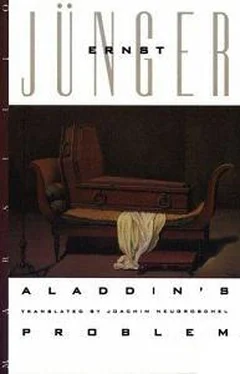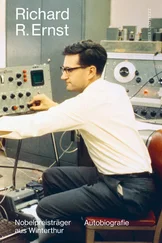A Pole is inconceivable without a horse; his love for horses exceeds even the Hungarian's. To his detriment, he persisted in this love too long. Military history contains the account of a final attack, in which Polish lancers rode out against tanks.
23
This passion may explain why superiors ignored minor irregularities in Jagello's uniform. It was gray like all the others, but somewhat daring in its cut and cloth. While riding, even when on duty, he wore boots with a silver trimming. He took part in horse races, even abroad; this was encouraged and liked. A railroad car for carrying the horses to Nice presented no difficulties.
Jagello's features were regular and nicely chiseled the kind of face that used to be called aristocratic. It would have been pale had his duties not taken him outdoors so frequently. Although a night worker, he had already exercised two horses by reveille: one in the manège and one in the countryside.
He said: "Riding is indispensable if you want to be in command. For the sake of our reflexes, we also ought to include tennis in the duty roster. If I were a writer, I would start the day with books and pictures — I reserve my nights for them."
He was, indeed, well read, not just for an officer. It was a mystery to me where he got the time. He was especially familiar with Russian literature; here, he had a preference for Western European motifs, say, Turgeniev's nihilistic Bazarov or Chekhov's stories. Once, at his prompting, the students of the military academy staged Gogol's Inspector General.
He was almost professionally obliged to have a thorough knowledge of history, it was part of his stock-intrade. Here too, he knew how to combine business with pleasure, namely, by reading journals and memoirs; he said they brought the fine structure into the skeleton. When we met, he was reading Helbig's Russian Minions.
24
Encountering a man with a literary and historical background was a godsend in those surroundings. One timidly touches a key and hears something that one scarcely hoped to hear: the sound. This is followed by an — almost imperceptible — smile of collusion. That was how it began, and it evolved into almost perfect harmony. We played through problems — such as: "Was Raskolnikov right when he thought of himself as Napoleon?" And: "To what degree does Napoleon exist in each of us?"
I have Jagello to thank for straightening me out in regard to some ofmy doubts. For example, I was plagued by the question of why we were serving — indeed zealously a system that we both found repulsive, and why we enthusiastically supported the development of weapons that would eventually blow us up too — that was the peak of schizophrenia. Jagello said:
"Schizophrenia is a trademark of subalterns, hence it is universal. They stay on the plain, they cannot change their spots. Raskolnikov was schizophrenic; he was both Napoleon and a starving student. Had he kept his knowledge to himself, he would have gone very far. Instead, he murdered the usurer. He was already wearing inside himself the chain in which he was sent to Siberia."
In contrast, Dostoevsky had performed and solved the experiment on a higher stratum. The usurer was killed here too, but the action remained in a spiritual space.
This stratum was the crucial one. You could descend to the plain, you could leave it to its own devices, you could enjoy it as a spectacle or interfere.
I could not quite go along with that; for after all, sooner or later, you have to take sides and you become vulnerable, as the gods themselves do in Homer. However, conversing with Jagello was fruitful for me, even if we did not reach an agreement — or perhaps precisely at those times.
Jagello used to protect himself with quotations; for this topic, he removed a well-thumbed book from the shelf. I thought it was the Iliad — it was The Birth of Tragedy. He read: "The problem of science cannot be perceived on the ground of science…. Science has to be seen with the eyes of the artist." In this regard, we were of the same opinion — just as both of us believed that we would be redeemed either by the poet or by fire.
25
Usually, we were still talking when it grew dark. The room was smoky; the samovar steamed on the table. Jagello loved strong tea. He loved cigarettes with long tips; often, he would take only a few puffs — he never inhaled. He would say: "There are vices that cancel one another out. When I smoke heavily, it affects my stomach. I prevent this by drinking a lot of tea."
While people may become very intimate, even among brothers, there are still taboos. We avoided them after recognizing them. One day, when there had been another rumpus in the Sejm, I found Jagello absorbed in his newspaper. He said: "It's so ridiculous that they can't overcome their fiasco."
I replied: "And yet with Pomerania, they have one of the richest soils, where prosperity was at home."
I had tried to express myself neutrally, but Jagello was obviously disgruntled. This was a wound for him — and for me too. The difference was that for him Poland, and for me Pomerania, were not yet lost. Our friendship was put to a test, which it survived.
When we travel today, not only in Europe, but also in faraway countries, we feel that a brother lies under the ground. He calls to us, and we have to restrain ourselves like the sons of Korah in Psalm 88: "Prayer in great tribulation and imminent mortal danger."
26
Spring had come. Our nights grew longer and longer; sometimes, when we separated, day was already dawning toward us. Our work did not suffer — on the contrary: we became as alert as if we had been trained in abstracting. I was allowed to accompany him on his early-morning rides.
Jagello's friendship also brought a change in my career. At the end of the military-school year, I became a lieutenant; Jagello was also promoted — he was now the youngest staff officer, and he was posted as attaché to the Berlin embassy. From there, he requested me as his assistant. This presented no difficulty; the Foreign Service offices were generously staffed. There were no qualms about my reliability or my qualifications; no one objected.
We continued our dialogues in our new relationship. But now we had to exercise greater caution, for these embassies are touchy places; the walls have ears, all dealings are monitored. The word "friendship" strikes a sour note. As in the old religious seminaries, the officials prefer the comrades to go in threes during breaks rather than in twos.
27
Here too, there was a great deal to learn. Jagello showed me several files that were not meant for my eyes, even though he knew that I got together with old friends and relatives. My life was pleasant, and I could take my time.
One morning, when we were riding in the Tiergarten, I casually said: "Jagello — I'm going to defect."
He showed little surprise: "I've sensed it for a long time — in fact, I knew it from the very start. You're expecting a great deal from me — it would have been better if you had said nothing."
"I wouldn't and couldn't do otherwise. I suggest that in the next situation report you write that you have developed doubts about my reliability. I'll be gone before my recall order comes from Liegnitz."
Once again, my friend proved that he could think. He said: "The response won't come from Liegnitz, because the report goes to the central office — and besides, I should have notified the ambassador the instant I had any doubts. And above all: if you were to vanish right after that, they would certainly conclude that I had put on the brakes — that we had conspired together. You did study Oppenheimer's trial, after all."
Oppenheimer was a nuclear physicist — and one of the schizophrenics — whose superior had been accused of this kind of complicity in a similar situation. Jagello was right: he would have to be as flabbergasted by my disappearance as anyone else.
Читать дальше












